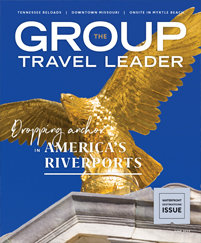Are you wasting people’s time?
Lost time is a fundamental part of travel, and many of us are accustomed to delays resulting from weather, mechanical failures, flight issues and other misfortunes on the road. And although they’re frustrating, delays aren’t often anyone’s fault. What is much more frustrating is when someone demands your time and attention and then fails to give you anything useful in return.
We have all been in this situation, probably more times than we realize. We wade through a torrent of irrelevant emails every day just to get to the handful of messages we need to see. We suffer through cold calls from salespeople pitching us products or services we have no interest in. We wait patiently during presentations as lackluster speakers drone on with facts we don’t need on topics we don’t care about.
No matter what role you play in tourism, communicating effectively — by email, on the phone, in person or from a stage — is an important part of your job. Communicate well, and you can elevate your business. Communicate poorly, and you’re just wasting people’s time.
With that in mind, here are five tips for making your communications more valuable to your audience.
1) Target your audience.
We all like the idea of our communications reaching the largest possible audience, but truth is, only a fraction of that audience is going to care about what you have to say. Instead of blasting general messages to the universe, try strategically targeting the people who are interested in your message.
2) Time your communications.
When communicating effectively, timing is everything. Don’t send important emails at the end of the day, when people are less likely to read them, or at the beginning of the day, when people are clearing out their spam. And if you’re speaking at a function that includes food, wait to start your remarks until after people have begun eating.
3) Make it meaningful.
People’s attention spans are limited, as is their tolerance for useless chatter. Whether you are emailing, calling or speaking live, always make sure the content of your communication is meaningful and helpful to your audience. Even if your objective is to sell or promote something, include enough smart, meaningful content in your communication that even a noncustomer will find it interesting.
4) Keep it short.
Nobody likes a long email or a rambling presentation. You may think every word of your message is important, but your audience will likely disagree. It’s notoriously difficult to edit your own ideas, but a good start is to write out your thoughts, then force yourself to cut the length of the script or message in half. Remember, less is almost always more.
5) Always be entertaining.
No matter whether you’re communicating in a personal or a professional context, everybody likes to laugh and have fun. You can ignore all these other suggestions and your audience will forgive you if your message is entertaining. Tell a joke, show a funny picture, or share a riveting story. If you’re having fun, your audience will, too.











